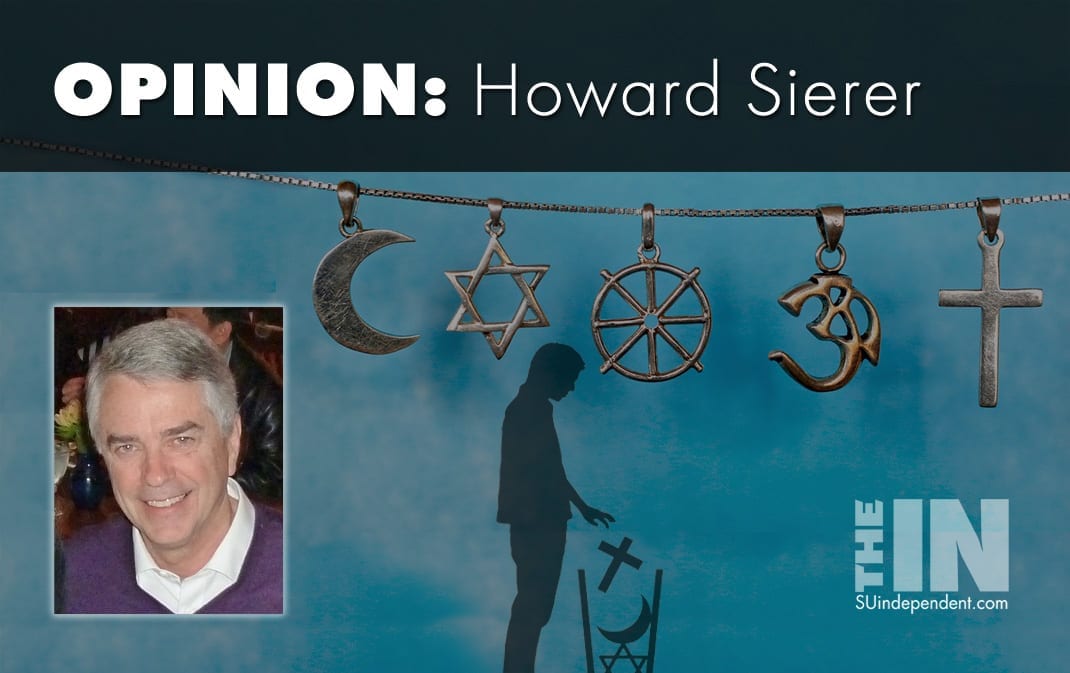
The Left’s War on Religion Continues
Give liberals credit for being persistent. The left’s war on religion continues with a contemporary new twist.
Taking former Obama advisor Rahm Emanuel’s famous advice: “Never let a serious crisis go to waste,” Democratic officials around the country are using the COVID-19 pandemic as an opportunity to chip away at religious freedom.
Virginia’s Democratic Governor Ralph Northam issued an executive order in March making it a criminal offense to hold or attend a church meeting with more than ten people. Incidentally, he made the announcement in a room crowded with 21 people.
His order prohibited the small Lighthouse Fellowship Church in Chincoteague, Virginia, from holding a sixteen-person, socially-distanced gathering in a 225-seat church. Police entered during its Palm Sunday service, dispersed the worshippers, and threatened to arrest any who came back on Easter.
Yet Northam’s order exempts professional services such as accountants and lawyers who are free to gather in any number. See a double standard there?
Kansas’ Democratic Governor Laura Kelly’s executive order exempts 26 types of secular activities and facilities, including bars and restaurants, libraries, shopping malls, retail stores, airports, hotels, childcare facilities, manufacturing processing, and distribution facilities, and office buildings. People can gather in unlimited numbers as long as they practice social distancing.
Yet Kelly expressly limits churches, synagogues, and mosques to meetings with no more than ten people. If you want to hold a large business meeting in a hotel, no problem. But the same social distancing won’t cut it if you want to attend a worship service.
Greenville Mississippi’s Temple Baptist Church thought it had solved its social distancing problem by holding a service in a drive-in movie theater with all congregants inside their own cars with the windows rolled up. Not so fast said its Democratic mayor who sent in the police to knock on windows, demand identification, and issue $500 citations.
Waiting in your car in a Wal-Mart parking lot or a drive-through restaurant line in Greenville is just fine; going to church is prohibited.
Cheered on by the New York Times and the usual suspects in the leftwing media, each of these Democratic officials along with others around the country contest that exempting certain activities is essential to preserve jobs. Church worship, they say, is not essential.
But the whole process of designating “essential” businesses and activities is arbitrary and politicized. Look no further than California’s “essential” recreational marijuana shops.
Persecuted but not discouraged, churches in each of the jurisdictions above have sued their respective government authorities. And now the plaintiffs have a powerful ally.
Eric Dreiband, head of the Department of Justice civil rights division, points out that for many people of faith, exercising religion is essential, especially during a crisis. Dreiband contends that Virginia “has offered no good reason for refusing to trust congregants who promise to use care in worship in the same way it trusts accountants, lawyers, and other workers to do the same.”
His boss Attorney General William Barr ordered federal prosecutors across the U.S. to identify coronavirus-related restrictions from state and local governments “that could be violating the constitutional rights and civil liberties of individual citizens.”
The U.S. Sixth Circuit Court of Appeals ruled that Kentucky Democratic Governor Andy Beshear’s executive orders have “several potential hallmarks of discrimination.” Overturning his order, the court asked:
“Why is it safe to wait in a car for a liquor store to open but dangerous to wait in a car to hear morning pastors? Why can someone safely walk down a grocery store aisle but not a pew? Why can someone safely interact with a brave deliverywoman but not a stoic minister?”
I’ve argued for responsibly preserving jobs. But as important as they are, jobs don’t appear in the Bill of Rights; freedom of religion does.
When asked last month about whether New Jersey’s lockdown was consistent with the U.S. Constitution, Democratic Governor Phil Murphy said: “I wasn’t thinking of the Bill of Rights when we did this.”
It’s time more Democrats considered the Bill of Rights.
Viewpoints and perspectives expressed throughout The Independent are those of the individual contributors. They do not necessarily reflect those held by the staff of The Independent or our advertising sponsors. Your comments, rebuttals, and contributions are welcome in accordance with our Terms of Service. Please be respectful and abide by our Community Rules. If you have privacy concerns you can view our Privacy Policy here. Thank you!
Click here to submit an article, guest opinion piece, or a Letter to the Editor




